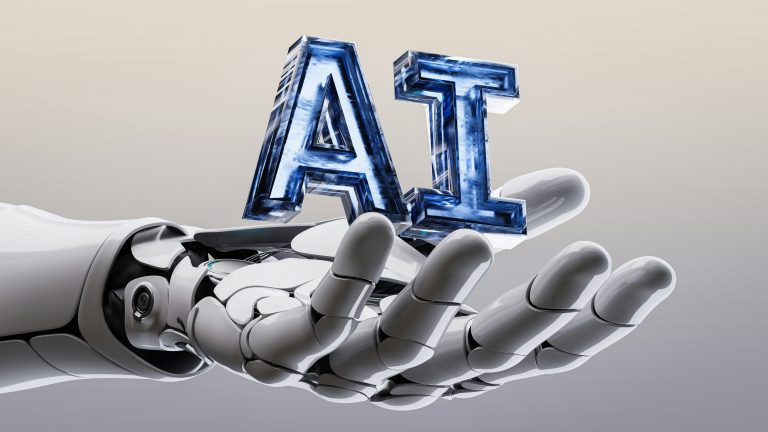The Consumer Electronics Show (CES) 2025 has once again proven to be a hotbed of innovation, with artificial intelligence (AI) taking centre stage across many industries. This year’s event has showcased how AI is no longer a standalone technology but an integral part of nearly every product and service, revolutionising the way we live, work, and interact with technology.
The Ubiquity of AI in Consumer Electronics
At CES 2025, it became clear that AI has evolved from a buzzword to a fundamental feature in consumer electronics. From smart home devices to personal gadgets, AI integration is enhancing user experiences in unprecedented ways. Nvidia’s CEO, Jensen Huang, set the tone with his keynote speech, introducing the concept of “Agentic AI” – autonomous AI systems capable of understanding tasks, planning, and taking action without constant human oversight.
One of the most talked-about innovations was the introduction of Copilot+ PCs. These AI-enhanced computers offer advanced voice control and predictive capabilities, transforming how users interact with their devices. The integration of AI assistants into everyday computing promises to boost productivity and simplify complex tasks for users across all skill levels.
Gaming and Entertainment: A New Era of Immersion
The gaming industry has always been at the forefront of technological adoption, and CES 2025 proved no exception. Nvidia’s unveiling of the GeForce RTX 50 series GPUs showcased the power of AI in gaming, promising unprecedented performance and realism. These new GPUs leverage AI for advanced ray tracing, DLSS (Deep Learning Super Sampling), and AI-enhanced character animations, setting a new standard for immersive gaming experiences.
Beyond traditional gaming, the iGaming sector is also benefiting from AI advancements. AI plays a key role in offering personalised bonuses in iGaming. By analysing player behaviour, AI systems can identify patterns and tailor promotions, such as free spins with no wagering, to individual preferences.
Healthcare: AI as a Cornerstone of Innovation
CES 2025 demonstrated that AI is revolutionising healthcare, from diagnostics to personalised treatment plans. One of the most significant breakthroughs showcased was in health telemetry. New wearable devices can now seamlessly and continuously measure vital signs non-invasively, including blood pressure and glucose levels.
These advancements, coupled with AI-powered analysis, are paving the way for more proactive and personalised healthcare.
AI is also making strides in medical imaging, with new algorithms capable of detecting abnormalities with unprecedented accuracy. This technology promises to assist healthcare professionals in early diagnosis and treatment planning, potentially saving countless lives.
Automotive: The Road to Autonomous Driving
The automotive sector at CES 2025 was dominated by advancements in AI-driven autonomous vehicles and advanced driver assistance systems (ADAS). Major automakers and tech companies showcased vehicles with enhanced self-driving capabilities powered by sophisticated AI algorithms that can navigate complex urban environments and respond to unexpected situations in real-time.
AI is not just limited to driving; it’s reshaping the entire in-car experience. From personalised infotainment systems that learn user preferences to AI-powered voice assistants that control vehicle functions, the car of the future is becoming a smart, connected hub on wheels.
Smart Home and IoT: AI at the Heart of Connectivity
The Internet of Things (IoT) has been a recurring theme at CES for years, but 2025 marked a significant leap forward in terms of AI integration. Smart home devices are becoming more intelligent and interconnected, with AI serving as the brain that coordinates various systems for optimal efficiency and user comfort. One standout innovation was the introduction of an IoT platform founded by tech industry veteran Ray Ozzie. This platform addresses security concerns in IoT by providing a modular, secure framework for device connectivity and data management. Such advancements are crucial for the widespread adoption of smart home technologies, as they address key concerns about privacy and data security.
The Future of Work: AI as a Collaborative Partner
The concept of AI as a collaborative tool in the workplace was a recurring theme at CES 2025. AI-powered productivity tools, virtual assistants, and data analysis platforms are transforming how businesses operate. These technologies are not replacing human workers but augmenting their capabilities, allowing for more strategic decision-making and creative problem-solving.
CES 2025 has made it abundantly clear that AI is no longer the future – it’s the present. From gaming to healthcare, automotive to smart homes, AI is reshaping industries and redefining what’s possible. As we move forward, the challenge will be to harness the power of AI responsibly, ensuring that these technological advancements benefit society as a whole.
The innovations showcased at CES 2025 are just the beginning. As AI continues to evolve and integrate into every aspect of our lives, we can expect even more groundbreaking developments in the years to come. The future, it seems, is not just smart – it’s intelligently artificial.
